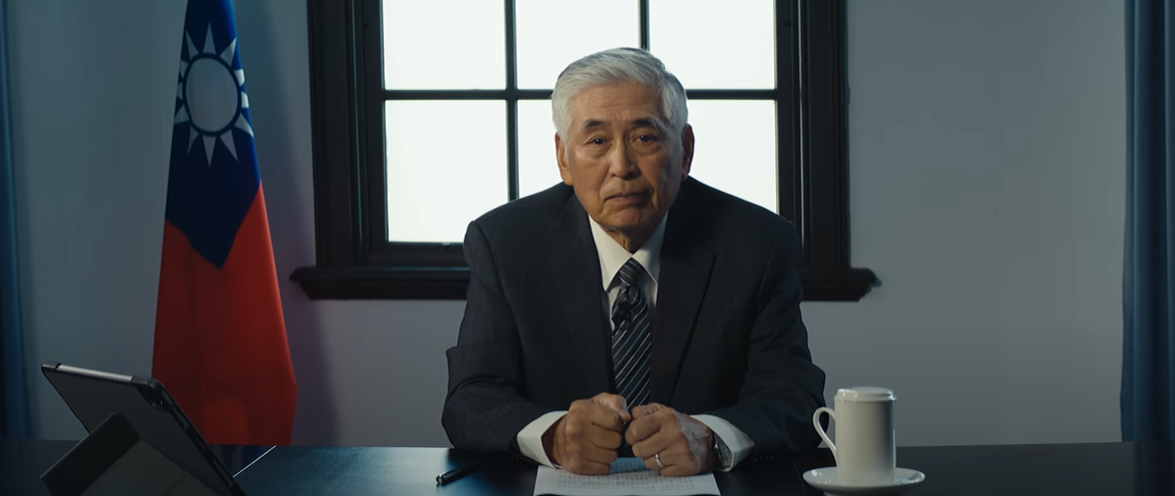
As China ramps up military drills around Taiwan, a new TV series is seeking to depict not only what a Chinese invasion of the island may look like but also the choices its people may face in the event of war.
The 10-part show called Zero Day is perhaps the first show in Taiwan to show what an actual invasion by China’s People’s Liberation Army, a threat facing the island for decades, may look like.
Earlier this year, Taiwan conducted the Han Kuang drills, meant to be the most realistic simulation of how it would defend itself against a possible Chinese invasion.
China considers Taiwan a part of its territory and seeks to unify it with the mainland, by force if necessary.
Zero Day’s 17-minute trailer, which was released in July 2024, made headlines and was viewed over two million times on YouTube.
Taiwan will see new episodes weekly from 2 August on its Public Television Service and Zero Day will get its international premiere on Japan’s Amazon Prime Video on 15 August.
The plot begins with a Chinese warplane disappearing from the southern part of the Taiwan Strait, which Beijing uses as a pretext to impose a total blockade on the island. Over the following week, Taiwan’s communications and financial systems crash and, coupled with fake news and deep fakes, Taiwanese people are no longer sure what to believe.
Even as chaos reigns, the Taiwanese navy finds a survivor from the Chinese plane and learns the aircraft’s disappearance was planned a week before the titular zero day of the invasion.
“We thought there is freedom in Taiwan but in film and TV production we are restricted by China on many levels,” Cheng Hsin Mei, the showrunner, told Reuters. “Our freedom is hard-earned. The People’s Liberation Army has launched substantial incursions against us and they are getting closer and closer. We should look at this directly rather than pretending that it is not happening.”
“The existence of this series shows that there are investors and talents who are willing to resist China’s aggression, and there’s a market for them,” director Lo Ging Zim told CNN. “We are all worried and anxious about Taiwan’s present and future, and we hope to contribute what we can with our own skills.”
Over half the crew who worked on the series requested to stay anonymous and some even pulled out at the last minute, worried over the repercussions for their careers and concerned for the safety of their families living and working on the mainland.
The crew of Zero Day includes 10 award-winning directors as well as Japanese actor Issei Takahashi, Hong Kong-Taiwanese actor Chapman To, Kaiser Chuang, Ko I Chen, and Lien Yu Han.
Several global companies often ban entertainers from being critical of Beijing, a demand that is often written into their contracts, according to a report by The Guardian.
“If they want to continue their careers, they must sign a contract which restricts them,” director Lo said. He added that a prominent actor, who wanted to join the cast, requested that production be delayed till their contract ran out.
When developing the series, the show creators consulted with experts to figure out the most likely scenarios that would occur if an invasion really took place. The team was allowed to film in restricted areas, including the presidential office in Taipei and a warship, and reportedly received funding from the ministry of culture under a broader initiative to support the Taiwanese film and television industry as well as from tech billionaire Robert Tsao.
One of Taiwan’s richest men, Tsao pledged $30.5 m of his own money in 2022 towards Taiwan’s defence.

Lo insisted that despite the funding and access to restricted areas, the government did not interfere with the script. “Not a single word of the script had been modified by the government. This is not a political propaganda video or patriotic film,” he told CNN.
Comments on the trailer indicated it struck a chord with many people.“I burst into tears watching this. I feel heavy-hearted, and it’s scary. But this is what we need to face as Taiwanese,” a YouTube user wrote, according to Time magazine.
“It helps Taiwanese to understand that we are facing a strong enemy trying to annex us and how we should be on guard with unity to face such an invasion,” Taipei resident Milton Lin, 75, told Reuters.
However, Zero Day has received criticism for alleged fear mongering. The opposition Kuomintang party has called the series “government propaganda”, while others have called out the show for making the Taiwanese government look too inept in the face of China’s actions.
As far as how Zero Day would be received, the team said they wanted it to show how the general populace had been desensitised to the actual threat of invasion.
“When it is shown visually, when it is happening in the streets and temples that people are familiar with, people have more real feelings and are willing to get up and do more,” said Lo. “This way, there will be less chance of war.”
Zero Day has been slammed by China as well. “The Democratic Progressive Party authorities want to force compatriots on both sides of the Taiwan Strait into conflict and to harm and ruin one another. They will find no support and their schemes will fail,” The Straits Times quoted defence ministry spokesperson Zhang Xiaogang saying in reply to a question about the show on 30 July.
The Democratic Progressive Party is the ruling party of Taiwan.
Trump says ‘friend’ India will face 25% tariffs ‘plus a penalty’ over Russia ties
Typhoon Co-May: China evacuates 283,000 people and cancels flights in Shanghai
China offers parents £375 per child to tackle declining birth rate
South Korea hails last-minute deal with Trump to reduce US tariff to 15%
How did Russia avoid major damage from earthquake and tsunami?
Tsunami mapped: Hawaii and California warnings issued after massive earthquake







